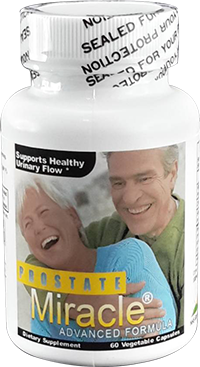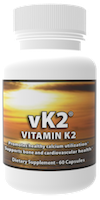Zinc and Prostate Health
The concentration of zinc in the prostate is higher than that in ANY other soft tissue in the body. This naturally occurring high concentration suggests that zinc may play a role in prostate health.
It is well known that neoplastic diseases, inflammatory diseases, infections and other stresses lead to changes in zinc metabolism, which results in lower blood serum zinc levels in general and lower zinc prostate levels in particular.
- Men with prostatitis typically have 90% lower zinc levels in their prostate than men without prostatitis.
- Men with prostate cancer typically have 83% lower zinc levels in their prostate than men without prostate cancer.
- Men with BPH typically have 61% lower zinc levels in their prostate than men without BPH.
A growing body of evidence supports the notion that high zinc levels are essential for prostate health. The possible mechanisms include the effects of zinc on the inhibition of terminal oxidation, induction of mitochondrial apoptogenesis and suppression of NF-kappaB activity. Zinc may also play an important role in the maintenance of DNA integrity in normal prostate epithelial cells by modulating DNA repair of damaged response proteins, especially p53. In addition, recent findings support the role of the ZIP1 zinc transporter protein, as a tumor suppressor in the prostate.
Read More
It is well documented that tumor cells undergo metabolic transformations, that are essential for their malignant existence, but are not the cause of malignancy. The specialized function of the normal prostate glandular epithelium (to produce and secrete enormously high levels of citrate) requires unique intermediary metabolic activities, that are not generally associated with other normal mammalian cells.
The accumulation of zinc in normal prostate glandular epithelial cells results in two important effects, a metabolic effect, and a proliferative effect. Its metabolic effect is the inhibition of citrate oxidation, which is necessary for prostate function. A second effect of zinc is its inhibition on prostate-cell proliferation.
In malignancy, the normal zinc-accumulating citrate-producing epithelial cells are metabolically transformed to citrate-oxidizing cells that lose the ability to accumulate zinc. A genetic alteration in the expression of ZIP1 zinc transporter is associated with this metabolic transformation. These genetic/metabolic relationships have important consequences on citrate-related metabolism, bioenergetics, cell proliferation, and invasive capabilities of the malignant cells, which result in tumor-suppression characteristics. Zinc is critical to these relationships.
It appears that the development of malignancy in prostate cancer may involve an essential metabolic transformation that results in the lost capability of malignant cells to accumulate zinc. Consideration of the clinical and biochemical evidence presented here leads to the conclusion that an altered zinc metabolism may play an important role in the pathogenesis of prostate malignancy.
Further studies will help clarify whether, along with clinical diagnosis, the zinc concentration in prostate biopsy specimens, plasma zinc and urine zinc/creatinine ratio of patients presenting with symptoms of prostatic diseases, are useful in the differential diagnosis of diagnosed prostatic carcinoma and BPH.
Read Less
Dietary Sources of Zinc
Zinc is found in a wide variety of foods, including red meat and poultry. Other good food sources include beans, nuts, certain seafood, whole grains, fortified breakfast cereals, and dairy products. Zinc absorption is greater from a diet high in animal protein than a diet rich in plant proteins.
Can Too Much Zinc Increase Your Risk of Prostate Cancer?
in 2003, a study published in the Journal of the National Cancer Institute, theorized that taking too much zinc can actually increase the risk of getting prostate cancer. Though this study has not been duplicated nor was any explanation given, the main finding was that men who consumed more than 100 mg/day of zinc were 2.29 times more likely to develop advanced prostate cancer than men whose total zinc intake was less than 100 mg/day. Men whose zinc supplementation was 100 mg/day or less were not at increased risk for any kind of prostate cancer
As scientists continue to discover the many ways in which oxidative stress is related to inflammation and its destructive consequences—from atherosclerosis to prostate, lung, colon, and other cancers, trace minerals such as selenium are likely to be the subject of even more research.
A daily serving of Prostate Miracle® Advanced Formula provides 15 mg of zinc, which is an optimal amount to support prostate health.














